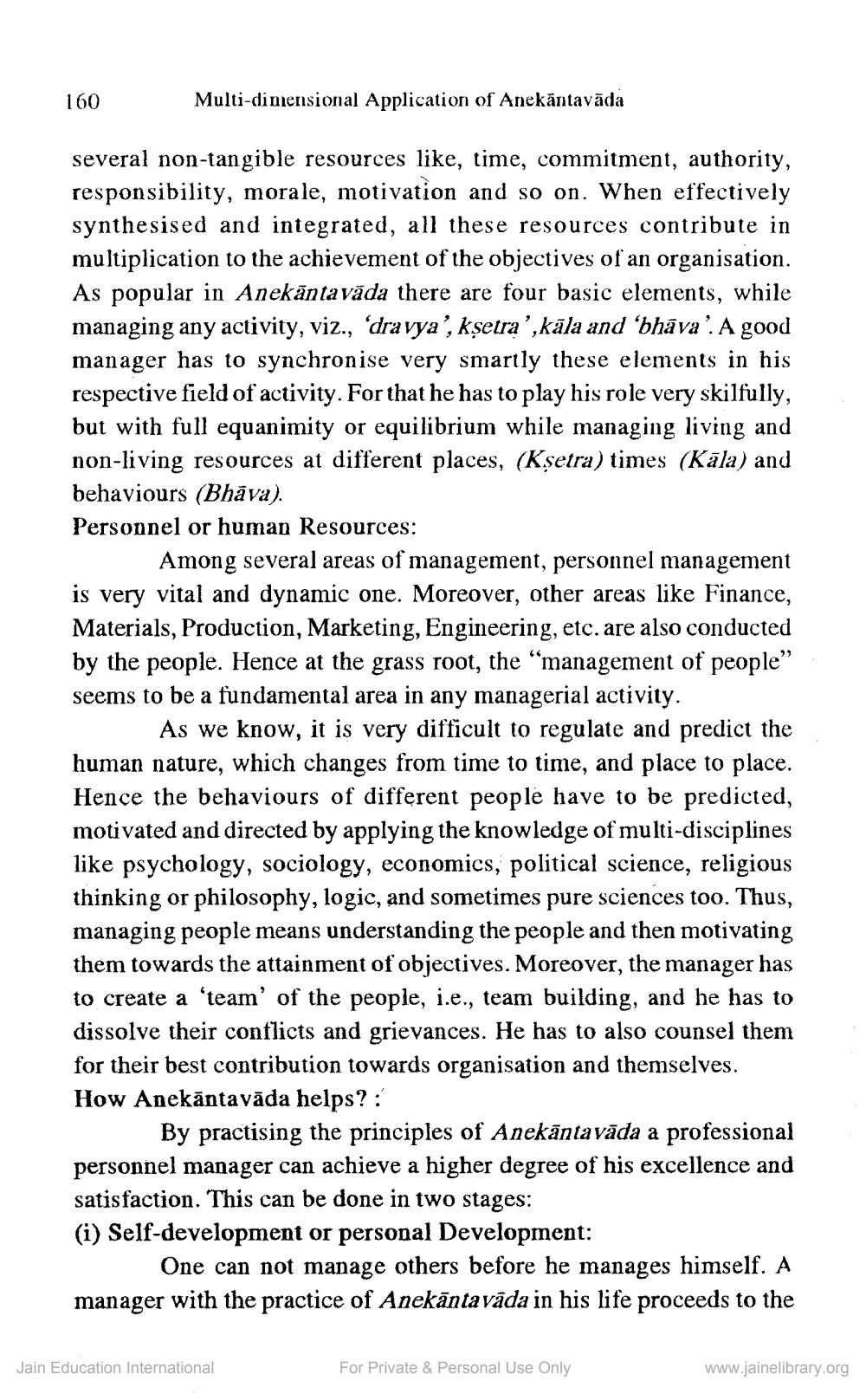________________
160
Multi-dimensional Application of Anekantavāda
several non-tangible resources like, time, commitment, authority, responsibility, morale, motivation and so on. When effectively synthesised and integrated, all these resources contribute in multiplication to the achievement of the objectives of an organisation. As popular in Anekāntavāda there are four basic elements, while managing any activity, viz., ‘dravya', kşetra ',kāla and 'bhāva'. A good manager has to synchronise very smartly these elements in his respective field of activity. For that he has to play his role very skilfully, but with full equanimity or equilibrium while managing living and non-living resources at different places, (Kșetra) times (Kāla) and behaviours (Bhāva). Personnel or human Resources:
Among several areas of management, personnel management is very vital and dynamic one. Moreover, other areas like Finance, Materials, Production, Marketing, Engineering, etc. are also conducted by the people. Hence at the grass root, the “management of people” seems to be a fundamental area in any managerial activity.
As we know, it is very difficult to regulate and predict the human nature, which changes from time to time, and place to place. Hence the behaviours of different people have to be predicted, motivated and directed by applying the knowledge of multi-disciplines like psychology, sociology, economics, political science, religious thinking or philosophy, logic, and sometimes pure sciences too. Thus, managing people means understanding the people and then motivating them towards the attainment of objectives. Moreover, the manager has to create a 'team of the people, i.e., team building, and he has to dissolve their conflicts and grievances. He has to also counsel them for their best contribution towards organisation and themselves. How Anekāntavāda helps?:
By practising the principles of Anekāntavāda a professional personnel manager can achieve a higher degree of his excellence and satisfaction. This can be done in two stages: (i) Self-development or personal Development:
One can not manage others before he manages himself. A manager with the practice of Anekāntavāda in his life proceeds to the
Jain Education International
For Private & Personal Use Only
www.jainelibrary.org




